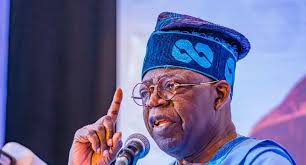Unknown to many Nigerians, failure in regular electricity supply to households and businesses in the country is not only as a result of government negligence or lack of resources to generate it, but also due to complicated web of officialdom.
This was revealed by speakers during the panel discussion at the WorldStage Economic Summit 2023 with the theme: National Dialogue on Electricity which took place on Thursday, November 16, 2023 at the Event Centre of the Nigerian Exchange Limited, Lagos.
At the she summit supported by Shell Nigeria, Nigerian Communications Commission (NCC), Nigeria LNG Limited (NLNG), Central Bank of Nigeria (CBN), Zenith Bank Plc, NNPC Limited and moderated by Professor Olufemi Saibu, Professor of Economics, University of Lagos, one of the panelists, Mr. Johnson Akinnawo who represented Dr. Nnamdi Nnemeka, the MD of Nigerian Bulk Electricity Trading PLC revealing that the power sector was largely challenged by draught of investors.
Another panelist, Mr. Gabriel Idahosa, Deputy President of the Lagos Chamber of Commerce & Industry (LCCI) who represented the President, Dr Michael Olawale-Cole, said to the contrary that refusal by federal government to grant electricity distribution companies the right of transmission had compromised their advantage to make profit.
Also exposing the defects that had been causing the country enormous electricity shortage, the representative of Mr Dele Kelvin Oye, National President, Nigerian Association of Chambers of Commerce, Industries, Mines and Agriculture (NACCIMA), Mr. William pointed out that electricity generating companies in the Nigeria were challenged by inadequate infrastructure to operate optimally and urged government to address the problems.
Earlier, Akinnawo had bemoaned the complexity in the entire chain of power generation, distribution and transmission by raising a concern that in spite of the large amount of money that had been pumped in by successive governments, electricity supply remains unreliable.
Responding to the question on how best to address the challenges of power generation, Akinnawo said it would require humongous investment considering the problem of gas supply for power generation.
“There is the problem of gas challenge because it’s more profitable to export gas than selling it locally to generate electricity,” he argued.
He differed with Idahosa’s position on states’ regulation of electricity as well as government ceding transmission to GenCos and DisCos as it did with generation and distribution.
Akinnawo argued that states were not financially endowed, a situation he said might create unintended unfavourable gap in electricity supply to respective public and eventually defeating the very essence of the policy of liberalization. He argued further that some states might be able to meet up with the financial capability needed to train and set up regulators.
Suggesting solution to the challenges of gas, he pointed out that investors would only come into the sector if they know they could make money.
“So, the solution to the challenge of gas in electricity generation is sufficient exploitation as well as exploration of gas to meet domestic needs for assured investment bankability. Model of concessioning the grid must be made bankable to encourage investors,” Akinnawo recommended.
He warned however that breaking up the grid had its advantages and disadvantages, explaining that if grid is broken down into smaller units, it would take a toll on the main or larger ones whenever problems occurred. But he emphasized that the federal government s yet to take decision about breaking the grid down to smaller units as being suggested by some sections of the Nigerian public.








